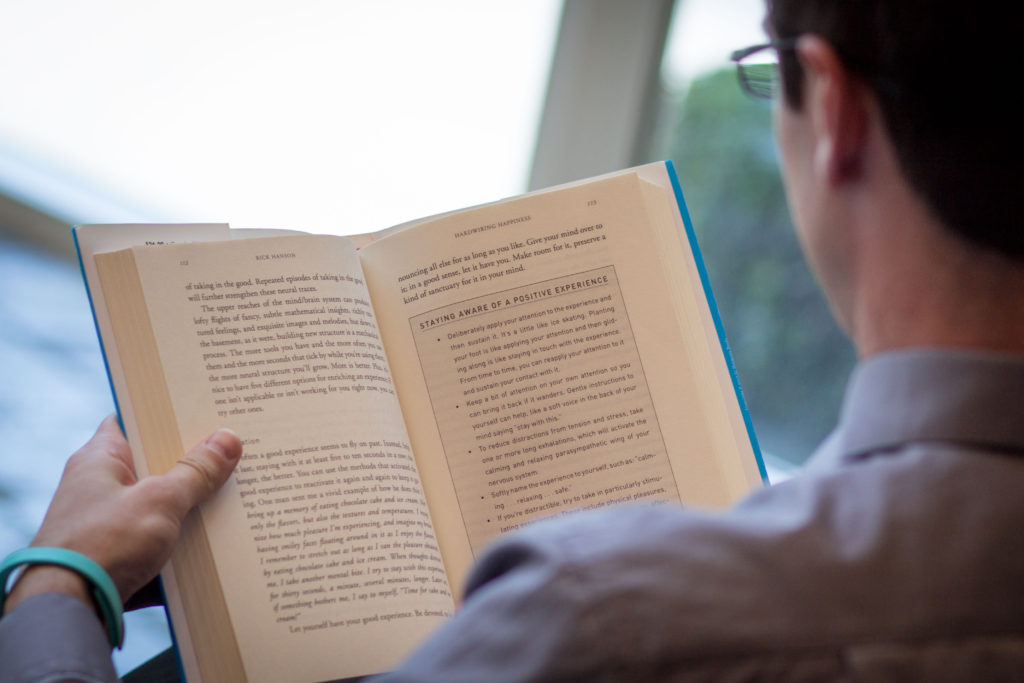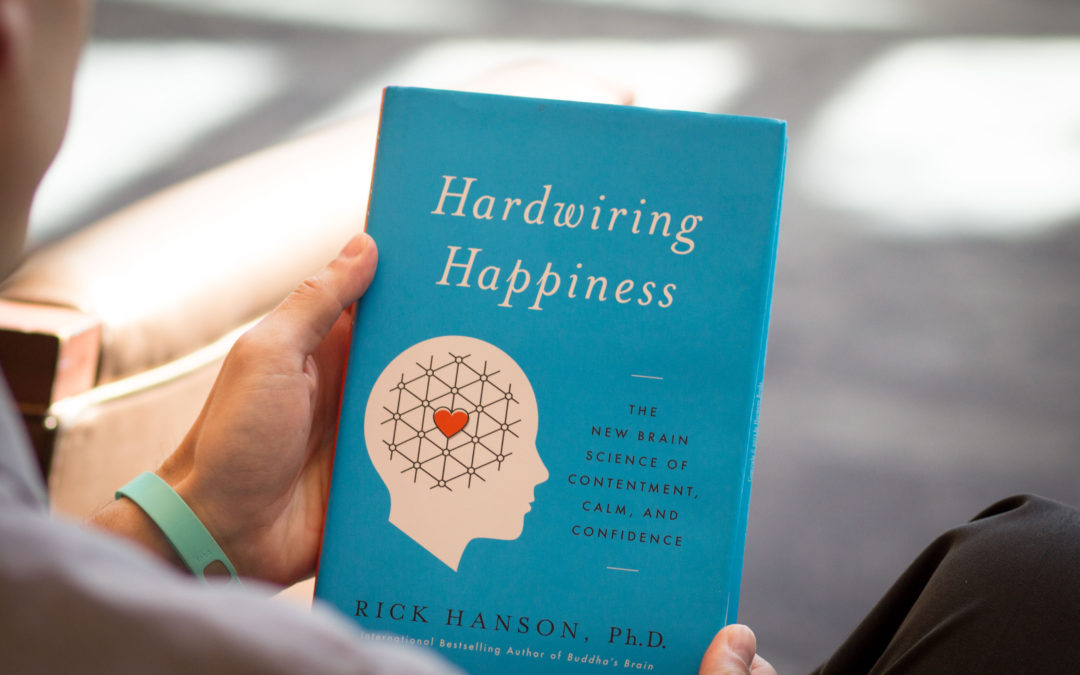In one way or another, we are all trying to find ways to achieve greater happiness in the workplace. For me, happiness at work translates to happiness at home, and vice versa. I can’t imagine that I’m alone in seeking ways to be even happier than I currently am. There is tons of content on the subject of happiness, including books, articles and entire courses. Xenium’s interest in these resources led the Xenium Book Club, by popular vote, to select Hardwiring Happiness by Rick Hanson for our latest reading material and discussion.
If you want a quick opinion from an avid reader as to whether or not you should pick this book up yourself, I’ll say this: the book was ideal for a discussion with other people. Personally, I did not find any new profound strategies for getting more happiness out of my everyday life, and in the words that follow I will share why I feel that way and what I did take away from it.
Key Takeaways
Happiness is a rigorous process, at least as it is described in the book. To truly achieve happiness,  the author suggests going through the process of having a positive experience, enriching the experience, absorbing the experience and linking positive and negative material together. In taking a closer look at my own perspective and my usual approach to everyday life experiences, I found that this method worked. I asked myself, “how often have I experienced something positive without stopping to enrich and absorb the experience?” We all take positive experiences for granted every single day. I thought of moments of my own: in a drive over the foothills, I was angrily thinking about something that happened earlier in the day instead of noticing the colorful sky during sunset and stopping to appreciate it. When taking my first sip of coffee in the morning, I rarely stop to think about how it makes me feel—it’s just a morning ritual that I care very little for at this point. When receiving recognition and appreciation from someone I care about, I often take it for granted, feeling that I deserve to be recognized instead of taking in that specific recognition and using it to fuel my energy, self-confidence, and most importantly, to build a stronger relationship with that person. I can think of so many other simple examples of positive experiences that I either take for granted or spin into a negative in some way. Being a process-oriented person, this book helped me become self-aware of those experiences and how I tend to take in each one.
the author suggests going through the process of having a positive experience, enriching the experience, absorbing the experience and linking positive and negative material together. In taking a closer look at my own perspective and my usual approach to everyday life experiences, I found that this method worked. I asked myself, “how often have I experienced something positive without stopping to enrich and absorb the experience?” We all take positive experiences for granted every single day. I thought of moments of my own: in a drive over the foothills, I was angrily thinking about something that happened earlier in the day instead of noticing the colorful sky during sunset and stopping to appreciate it. When taking my first sip of coffee in the morning, I rarely stop to think about how it makes me feel—it’s just a morning ritual that I care very little for at this point. When receiving recognition and appreciation from someone I care about, I often take it for granted, feeling that I deserve to be recognized instead of taking in that specific recognition and using it to fuel my energy, self-confidence, and most importantly, to build a stronger relationship with that person. I can think of so many other simple examples of positive experiences that I either take for granted or spin into a negative in some way. Being a process-oriented person, this book helped me become self-aware of those experiences and how I tend to take in each one.
My key takeaway from this book is to view as many of my life experiences in a more positive way to reduce the amount of time I spend thinking negatively.
What I didn’t like
This is a personal preference for me, but I don’t particularly enjoy books written by academics that only have research and a strong conviction to back up their ideas or hypothesis. I find that their research tends to confirm their biases. I love storytelling and examples from real people or businesses to back up ideas—I find it way more interesting. Theory is great and I love listening to new ideas, but the way this book was written was very sciencey (i.e. dry and boring). I understand that achieving happiness can be a process if you want to build and sustain a happy life all the time, but reading about it certainly didn’t make me happy! All I could think about was how fast I wanted to get through this so I could move onto my next book. Do you know how there are books you read, particularly non-fiction, where you think to yourself, “why is this 300 pages? It could have been written in 50.” That is most definitely this book. I thought it would have been great as a whitepaper.
Summing it up
I read a lot of books with the hope of gleaning a few nuggets of information that might stick with me. I never read a book thinking that I will follow every single idea or process. So, with that in mind, I did get some decent information out of this book. Everything I mentioned in the Takeaways section above I meant, and I really try to practice it as much as I can. What I got the most from my experience with this book, though, was the amazing discussion I had with my peers about what they got out of it and how they plan to implement the ideas in their own lives. I’ll admit, I gave this book 2/5 stars on my Goodreads before the Xenium Book Club discussion; however, after the discussion, I would give it more like a 3 or 3.5 out of 5 for the following reasons: there were a ton of ideas that I missed in reading the book that others caught and it sparked one of the best discussions I’ve had in one of our Book Club meetings.

